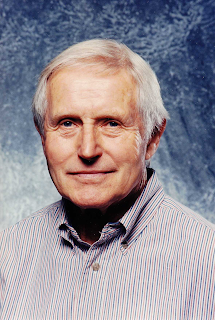FQ: Have you traveled to or established any personal ties to the countries you write about; if so, how does that contact affect your current thinking?
STOLTZFUS: I was born in Bulgaria. I have visited Istanbul many times. I lived in Beirut for two years, and I have been to the Holy Lands. I know them all reasonably well. I lived in Bulgaria for twelve years, but all that was in the 1930s and 1940s during World War II. I have been back to Bulgaria to see friends, and to Turkey on a number of occasions since then, but not to the Middle East. My present thinking about these countries depends on current events and the political situation from year to year.
FQ: You use examples from the Bible, from great literature and from the teachings of Gandhi to illustrate certain points; are any of your own spiritual views reflected in those widespread references?
STOLTZFUS: I would say that the New Testament reflects many of my ethical views, particularly The Sermon on the Mount. Gandhi’s satyagraha, meaning do no harm, and his advocacy of non-violent resistance have been guiding principles in my thinking and actions.
As for literature, D.H. Lawrence, Baudelaire, Rimbaud, Blake Dostoevsky, and many others have been influential, not only for their styles and aesthetic views but also for their insights into the complexities of life.
FQ: What single piece of advice would you give to a person preparing to read your work with no previous knowledge of its content?
STOLTZFUS: Sit back, open your mind, and enjoy.
FQ: Did you have any direct or, as in your book, indirect experience of World War II or any other major war and if so, how did that blend with your construction of Transgression?
STOLTZFUS: I, like the narrator of Transgression, lived in Bulgaria for two years, when the Germans occupied the Balkans. I, like the narrator, was also in the Middle East, the crossing of the Mediterranean, and the crossing of the Atlantic. The World War II events that the narrator describes in the novel are accurate historically because I, the author, lived through them—some directly, most of them indirectly. The separate war that the narrator wages with dogma echoes the battles of World War II in Europe and North Africa, with one major difference: the narrator finds his soul and peace while he is Beirut in 1944. World War II ends with the dropping of the A-bomb on Hiroshima and Nagasaki in 1945. World peace comes one year later than the narrator’s peace of mind.
FQ: Does positing and writing about an oppressive regime and the ways it might be overthrown or reformed give you a sense of hope?
FQ: What sources most guided you in arranging the chronology of WWII in your book?
STOLTZFUS: I didn’t arrange the chronology of World War II. Events happened as the war unfolded. At the time, when I was living through them, there was the radio, mainly the BBC.
FQ: Your hero does a lot of reading. Do you have any personal favorites among the books and authors included in this story?
STOLTZFUS: See question 2, paragraph 2.
FQ: Do you have plans for your next literary endeavor?
STOLTZFUS: I’m writing a biofiction of my wife entitled Big JP: The Nine Lives of Judith Palmer. She survived two drownings, a disastrous first marriage, an LSD overdose, two years with a psychiatrist, and much more. It’s her biography combined with the fictions I have written about episodes in her life, and her collaboration with me on the pictonovel, Romoland. This hybrid combines my fictions and 25 images of a woman-artist (Judith is an artist) striving to find a voice in an oppressive phallocratic environment. Her images speak. My writing sees.



No comments:
Post a Comment